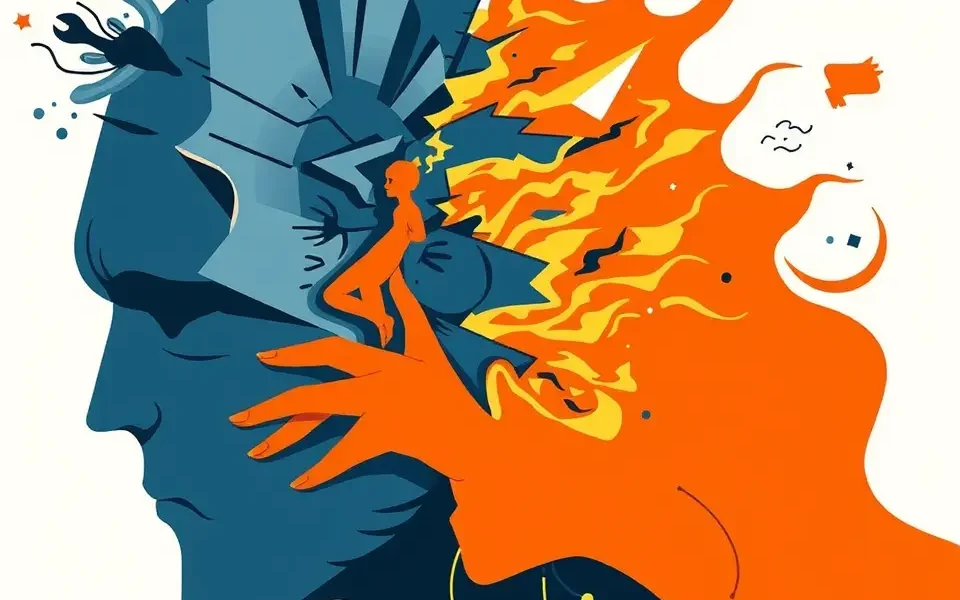Daniil Medvedev, the world-renowned tennis star, has recently offered a candid look into his on-court behavior, acknowledging his “foolish” moments and delving into the complex emotions that fuel his passionate, sometimes controversial, displays. In a series of interviews and press conferences, Medvedev has reflected on his past actions, offering insights into his mindset and his ongoing efforts to manage his emotions in the high-pressure world of professional tennis.
Acknowledging the “Foolish” Behavior
Medvedev has never been one to shy away from expressing his emotions on the court. This has, at times, led to clashes with umpires, confrontations with the crowd, and displays of frustration that have drawn both criticism and, perhaps surprisingly, a certain level of endearment from some fans.
During the 2025 Australian Open, Medvedev faced scrutiny for an incident where he smashed his racket against a net camera during his first-round match. While he acknowledged his actions and seemed to downplay the financial implications, he understood that fines would follow. The ATP has strict rules regarding on-court conduct, and damaging equipment can result in fines or harsher penalties if deemed egregious. Given Medvedev’s history of controversial behavior, this incident was reviewed critically. He was ultimately fined over £60,000 for unsportsmanlike conduct following his behavior at the Australian Open.
In another instance, at the Monte Carlo Masters, Medvedev admitted to “going crazy” after a disagreement with the umpire. He explained that he gets frustrated when he feels that incorrect calls are made, and he struggles to control his emotions in the heat of the moment.
The “Bipolar” On-Court Persona
Medvedev himself has described his on-court behavior as being “a bit like being bipolar.” He explains that when he is on the court, he is intensely focused and driven by adrenaline. This heightened state can lead to emotional outbursts that are in stark contrast to his calmer, more collected demeanor off the court.
“When I’m on the court, it’s not a separate person, but it’s just that this complicated world inside of me comes out and fully shows itself on the court,” Medvedev explained. “But in general, I’m someone who takes everything very easy, especially if you don’t bother me.”
He admits that in regular life, he rarely experiences the intense emotions that he feels on the court. “It’s not really two different personalities,” Medvedev explains. “It’s just that on the court, there are things that make me feel the emotions. I mean, things like adrenaline, and emotions that I very rarely experience in real life.”
This contrast between his on-court and off-court personas has led some to see him as a complex and enigmatic figure. While he is known for his fiery temperament during matches, he is often described as relaxed and introspective away from the court.
The Search for Control and Understanding
Medvedev has been open about his efforts to understand and manage his on-court behavior. He has worked with psychologists and explored various strategies to maintain his composure during matches.
“I’ve worked with people, psychologists… Maybe it comes from my childhood, or something else,” he said. “But yes, even though we haven’t finished educating our daughter, sometimes she behaves like me. Maybe it’s genetic… But on the court, I fight to the death, I play to win, to be competitive. The only thing that counts is winning the match. Things can happen that make you angry.”
Despite his efforts, Medvedev acknowledges that he is unlikely to completely eliminate his emotional outbursts. Instead, he focuses on being more aware of his actions and finding ways to channel his emotions in a more constructive manner.
“I’m going to have some tantrums, and stuff like this, that’s just who I am. I’m not going to be able to beat it, because if I beat it, it’s just as if I’m hiding it. And it’s not good hiding things,” he explained. “But I feel like when I’m conscious of what I do, I’m much calmer, much more joyful, much more kind, either on court or not on court.”
He also recognizes the importance of not crossing the line and maintaining respect for his opponents and the sport. “I just need to not cross the line and be friends after the match because that’s how sport work also,” he added. “I’ve tried many different things in my career, trying to stay calm, but sometimes I go very crazy. And I think what works is whatever you feel like will work at this moment. It should not cross the line, that’s for sure, because you can get defaulted, and that’s not nice.”
A Love-Hate Relationship with Tennis
Medvedev has also spoken about his complex relationship with tennis. He admits that there are times when he loves the sport and times when he struggles to find enjoyment in it.
“There are days when we love tennis very much, and others not so much,” he confessed. In late 2024, he said, “Every practice is a struggle…Every match is a struggle. Now I feel zero pleasure of being on the court.”
This love-hate dynamic is perhaps relatable to many who pursue demanding and competitive careers. The pressure to perform, the constant travel, and the emotional toll of wins and losses can take a significant toll on even the most dedicated athletes.
Iconic Moments and Lasting Legacy
Despite his struggles with on-court behavior, Medvedev has also created many iconic moments and is building a lasting legacy in the sport. His US Open victory in 2021 was a defining moment in his career, and he has consistently been ranked among the top players in the world.
He is also known for his wit and humor, which he often displays in post-match interviews. One memorable example is his response to being booed by the crowd at the 2019 US Open. Instead of being discouraged, Medvedev embraced the negative energy and used it to fuel his performance.
“Thank you all guys,” he said to the booing crowd. “Because your energy tonight give me the win. Because if you were not here guys, I would probably lose the match…So I want all of you to know, when you sleep tonight, I won because of you!”
Medvedev recognizes that his on-court behavior, both good and bad, has contributed to his unique identity in the sport. “When I’m on the court, I always make headlines,” Medvedev said. “Sometimes bad. Sometimes good. Sometimes funny. Sometimes less funny…I will finish my career. I will have some good legacy in terms of titles and good memories on court and for sure some iconic moments like on the microphone.”
Looking Ahead
As Daniil Medvedev continues his career, he will undoubtedly face new challenges and opportunities. His ability to acknowledge his flaws, learn from his experiences, and maintain a sense of humor will likely serve him well as he strives for continued success on and off the court. Whether fans love him or hate him, there’s no denying that Daniil Medvedev is one of the most compelling and complex figures in modern tennis.








No Comment! Be the first one.